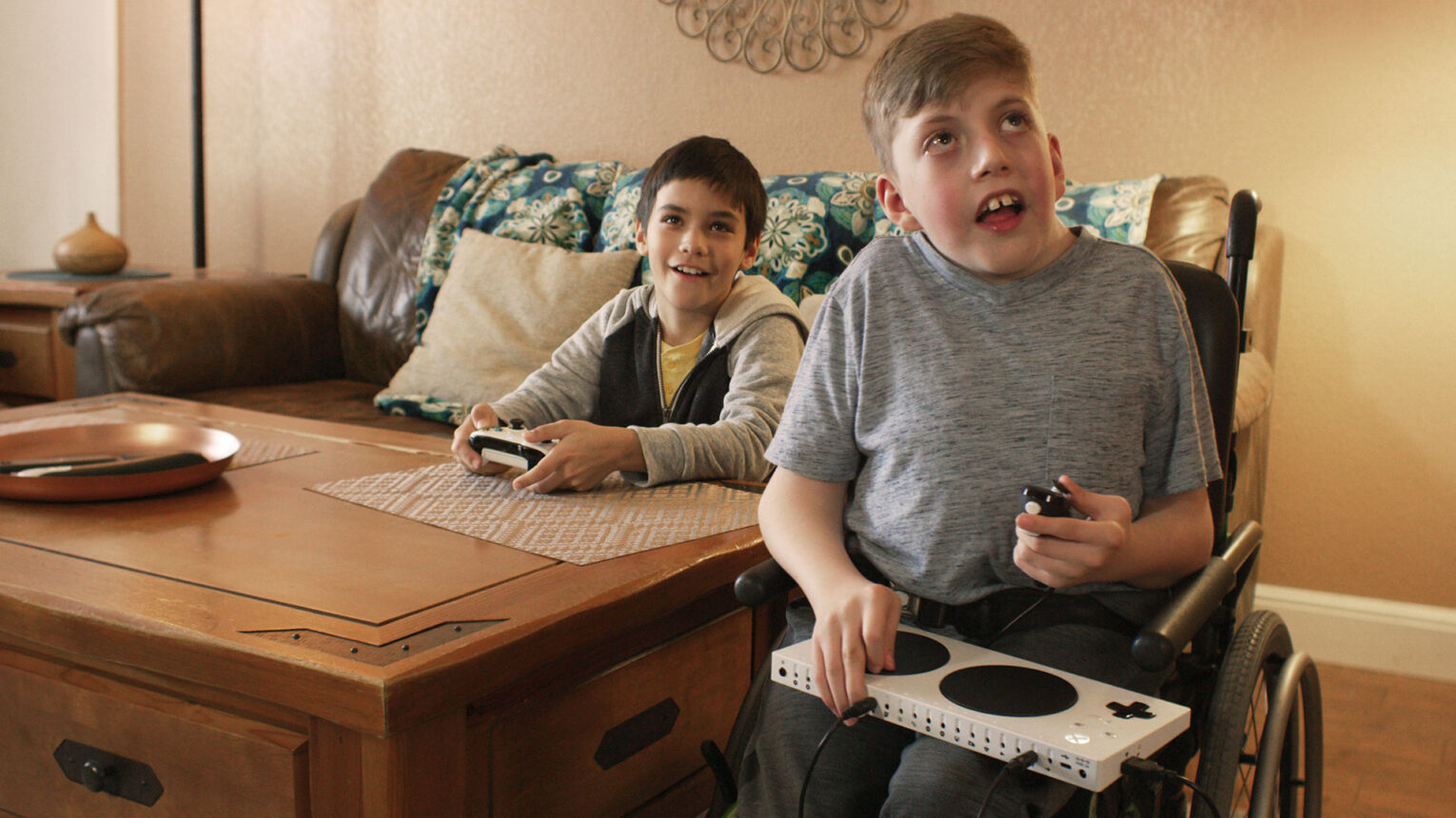Reduced Budgets, Reduced Accessibility In Video Games

Table of Contents
The Rising Cost of Accessibility Features
Implementing robust accessibility features is far from trivial; it's a substantial undertaking demanding both financial and human resources. The cost of creating truly accessible gaming experiences is often underestimated.
Development Time and Expertise
Developing effective accessibility features requires significant time and specialized expertise. It's not simply a matter of adding subtitles; it necessitates meticulous planning and implementation across the entire game development lifecycle.
- Specialized Expertise: Hiring accessibility consultants and experts to guide the process adds considerably to development costs. These professionals possess the knowledge and experience to identify and address accessibility challenges effectively.
- Rigorous Testing: Extensive testing with diverse groups of players with disabilities is crucial to ensure that implemented features are both effective and usable. This thorough testing process adds time and resources to the development timeline.
- Ongoing Maintenance: Accessibility features aren't set-and-forget; they require ongoing maintenance and updates to address bugs, incorporate feedback, and adapt to evolving technologies and best practices. These post-launch costs are often overlooked.
Technological Limitations and Costs
Advanced accessibility features push the boundaries of current technology and often require considerable technological investment. AI-powered narration, for example, requires specialized software and powerful processing capabilities.
- Licensing and Hardware: Implementing cutting-edge accessibility technologies may necessitate licensing fees for specific software or specialized hardware, significantly increasing development costs.
- Development Hurdles: Technological limitations can lead to unexpected delays and increased development time as developers grapple with integrating new technologies into existing game engines and frameworks.
- Ongoing Technological Costs: Maintaining and updating these technologies requires ongoing investment, ensuring compatibility with evolving hardware and software ecosystems.
The Impact on Player Inclusivity
The lack of accessibility features directly impacts player inclusivity, excluding a significant portion of the potential gaming audience. This isn't just an ethical consideration; it's a missed business opportunity.
Exclusion of Players with Disabilities
Millions of gamers have disabilities that affect their ability to play games without appropriate accessibility options. Excluding them is a significant loss.
- Market Size: The gaming community encompasses a large number of individuals with a wide range of disabilities. Ignoring their needs shrinks the potential market significantly.
- Exclusionary Mechanics: Many game mechanics, from fast-paced action sequences to complex control schemes, can render games unplayable for those with certain disabilities. Examples include individuals with motor impairments, visual impairments, or cognitive differences.
- Lost Revenue: The exclusion of players with disabilities directly translates to lost revenue and market share, impacting the financial success of a game.
Negative Impact on Game Reviews and Reputation
In today's digitally connected world, word of mouth and online reviews are powerful forces that significantly impact a game's success. A lack of accessibility features can severely damage a game's reputation.
- Criticisms and Reviews: Gamers and critics are increasingly vocal about accessibility expectations, and the absence of such features can result in negative reviews and critical backlash.
- Social Media Backlash: Negative experiences can lead to considerable negative attention on social media platforms, impacting the overall perception and sales of the game.
- Word-of-Mouth Marketing: Positive word-of-mouth marketing is crucial for a game's success, and a lack of accessibility can significantly hinder this organic marketing process.
Potential Solutions and Mitigation Strategies
While the costs associated with accessibility features are undeniably real, there are several strategies developers can employ to mitigate these challenges and create more inclusive gaming experiences.
Prioritizing Accessibility in Early Development
Incorporating accessibility considerations from the earliest stages of game design is paramount. This proactive approach reduces the cost and complexity of implementing accessibility features later in the development cycle.
- Accessible Design Principles: Integrating accessible design principles and guidelines from the outset ensures that accessibility is an inherent part of the game's architecture, not an afterthought.
- Early Consultation: Engaging accessibility experts early in the design process allows for proactive problem-solving and prevents costly rework later on.
- Iterative Testing: Conducting iterative testing with diverse players with disabilities throughout development is essential to identify and address accessibility issues promptly.
Leveraging Open-Source Tools and Technologies
The accessibility community has developed many valuable open-source tools and resources that can significantly reduce the cost of implementing accessibility features.
- Open-Source Libraries: Several open-source libraries and frameworks offer pre-built accessibility solutions, significantly reducing development time and costs.
- Community Support: Utilizing open-source resources also provides access to a vibrant community of developers who can offer support and guidance.
- Cost-Effectiveness: Leveraging open-source solutions offers a significantly more cost-effective approach compared to developing everything from scratch.
Funding and Support for Accessible Game Development
Increased funding and industry support are essential to promote and facilitate accessible game development. This could be achieved through various avenues.
- Grants and Sponsorships: Governments, foundations, and industry organizations can provide grants and sponsorships to support accessible game development projects.
- Industry Partnerships: Partnerships with accessibility organizations can provide valuable expertise, resources, and networks to developers.
- Long-Term Investment: Investing in accessible game development isn't just an ethical responsibility; it's a smart business decision that expands the market and fosters a more inclusive gaming community.
Conclusion
Reduced budgets should not translate to reduced accessibility in video games. The evidence is clear: excluding a significant portion of potential players due to a lack of accessibility features negatively impacts inclusivity, player experience, and ultimately, a game's financial success. We must encourage developers and publishers to prioritize accessible game development, incorporating accessibility from the initial design phase, leveraging open-source resources, and seeking funding opportunities. Let's champion inclusive gaming and demand better accessibility from the gaming industry. Support studios that prioritize accessible gaming experiences, and let your voice be heard – demand better accessibility features in the games you love. By working together, we can create a truly inclusive and enjoyable gaming experience for everyone.

Featured Posts
-
 The Israeli Embassy Attack Identifying Suspect Elias Rodriguez And His Motives
May 23, 2025
The Israeli Embassy Attack Identifying Suspect Elias Rodriguez And His Motives
May 23, 2025 -
 Tu Horoscopo Semanal 1 Al 7 De Abril De 2025
May 23, 2025
Tu Horoscopo Semanal 1 Al 7 De Abril De 2025
May 23, 2025 -
 Rio Tinto Addresses Environmental Concerns Raised By Andrew Forrest Regarding The Pilbara
May 23, 2025
Rio Tinto Addresses Environmental Concerns Raised By Andrew Forrest Regarding The Pilbara
May 23, 2025 -
 Investigating The Impact Of Trumps Cuts On Museum Programs And Their Communities
May 23, 2025
Investigating The Impact Of Trumps Cuts On Museum Programs And Their Communities
May 23, 2025 -
 The Karate Kid Part Iii Exploring Its Themes And Legacy
May 23, 2025
The Karate Kid Part Iii Exploring Its Themes And Legacy
May 23, 2025
Latest Posts
-
 Sylvester Stallones Tulsa King Season 3 Neal Mc Donoughs Return And Filming Updates
May 23, 2025
Sylvester Stallones Tulsa King Season 3 Neal Mc Donoughs Return And Filming Updates
May 23, 2025 -
 New York City Memorial Day Weekend Weather Forecast And Rain Probability
May 23, 2025
New York City Memorial Day Weekend Weather Forecast And Rain Probability
May 23, 2025 -
 Gas Prices Plunge Memorial Day Weekend Savings
May 23, 2025
Gas Prices Plunge Memorial Day Weekend Savings
May 23, 2025 -
 Gas Prices To Plunge For Memorial Day Weekend
May 23, 2025
Gas Prices To Plunge For Memorial Day Weekend
May 23, 2025 -
 Memorial Day Travel Gas Prices At Their Lowest
May 23, 2025
Memorial Day Travel Gas Prices At Their Lowest
May 23, 2025
